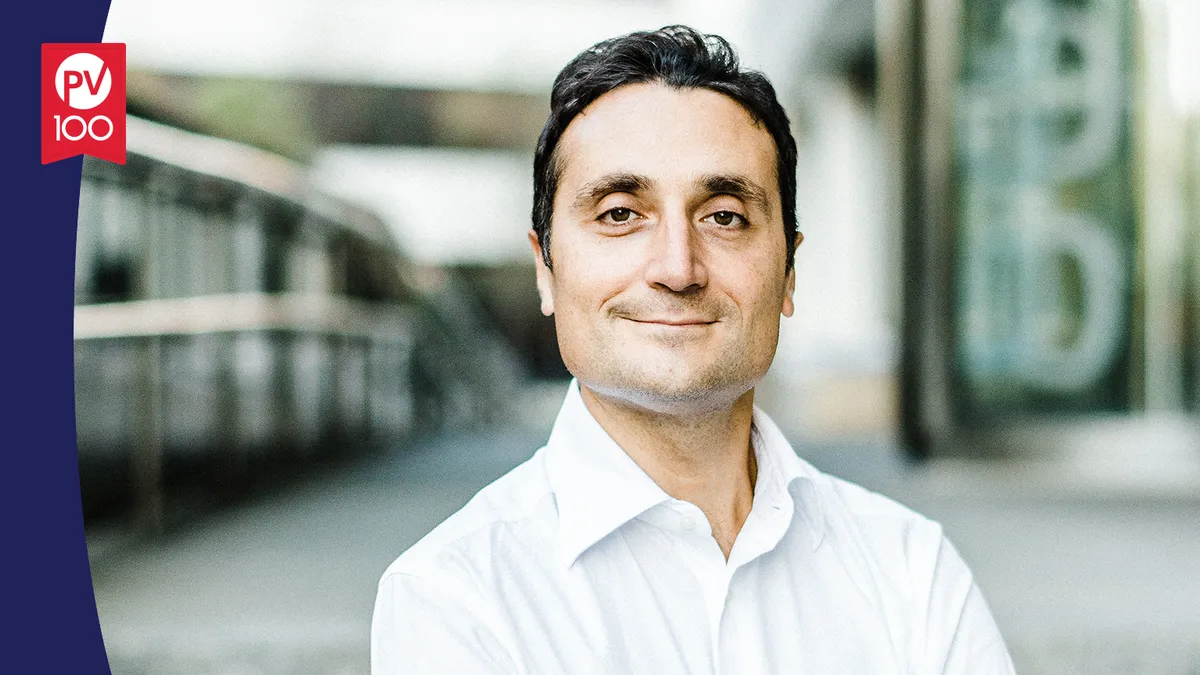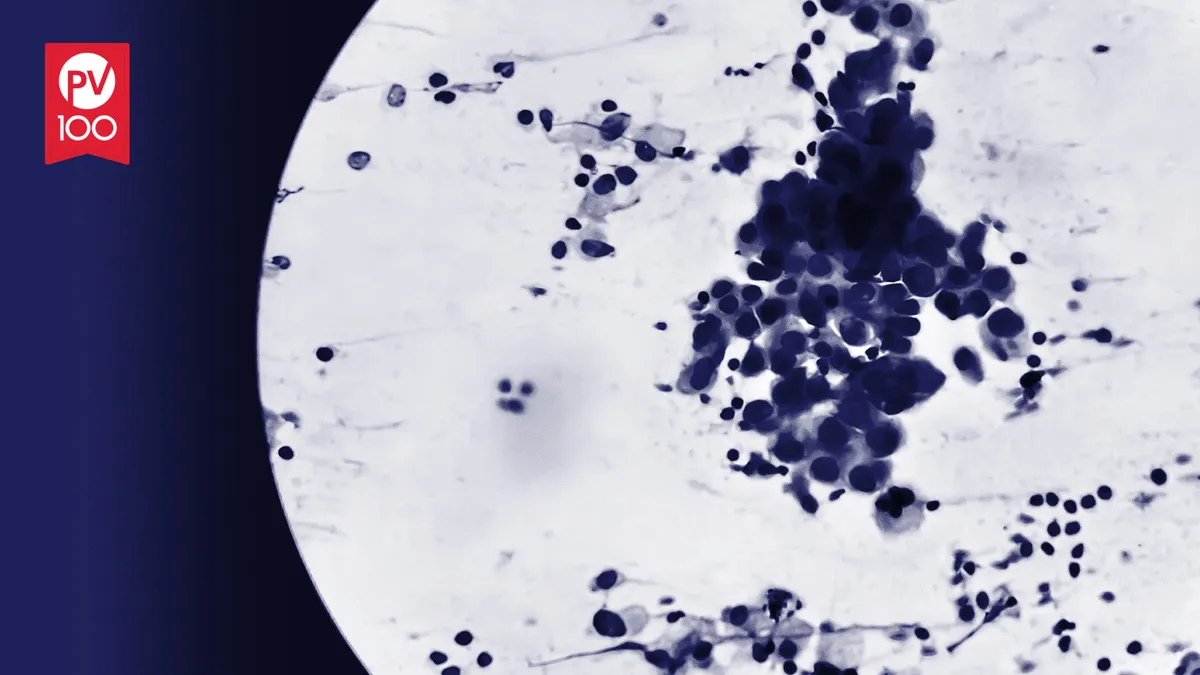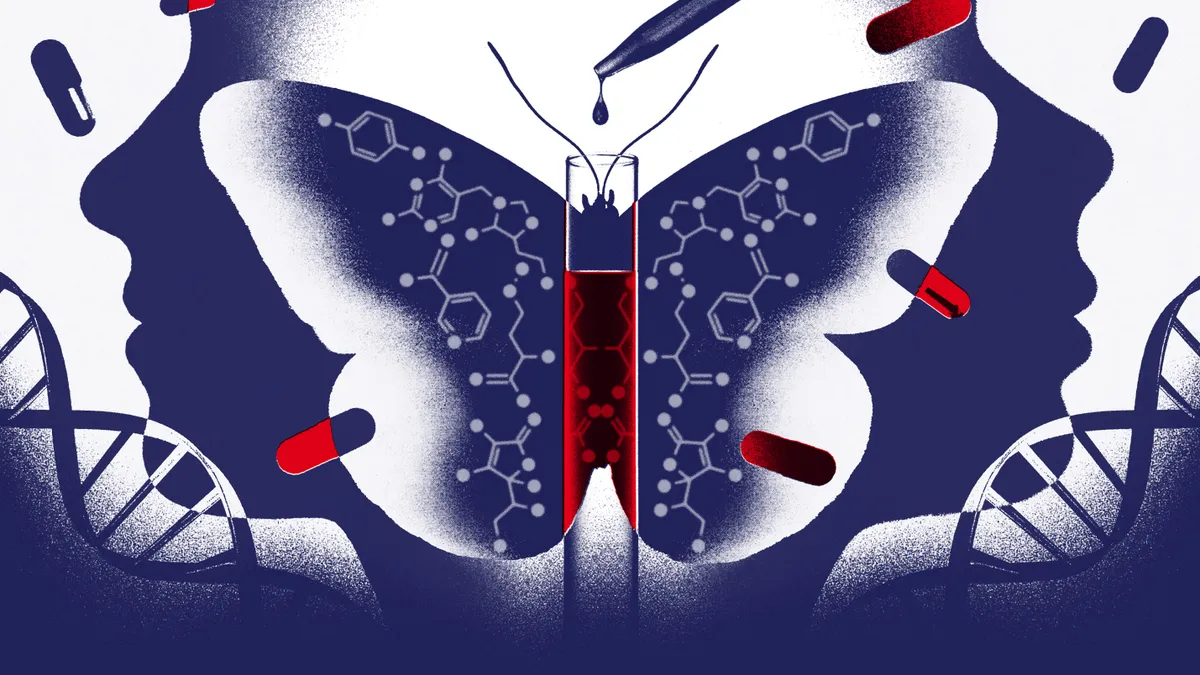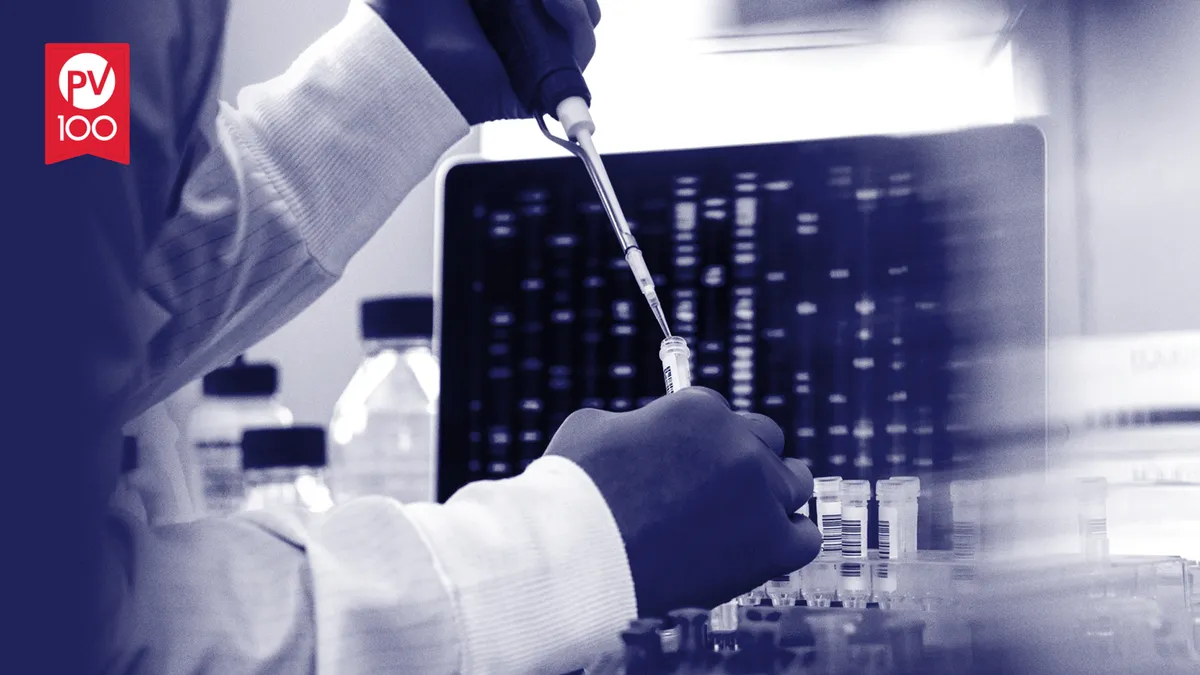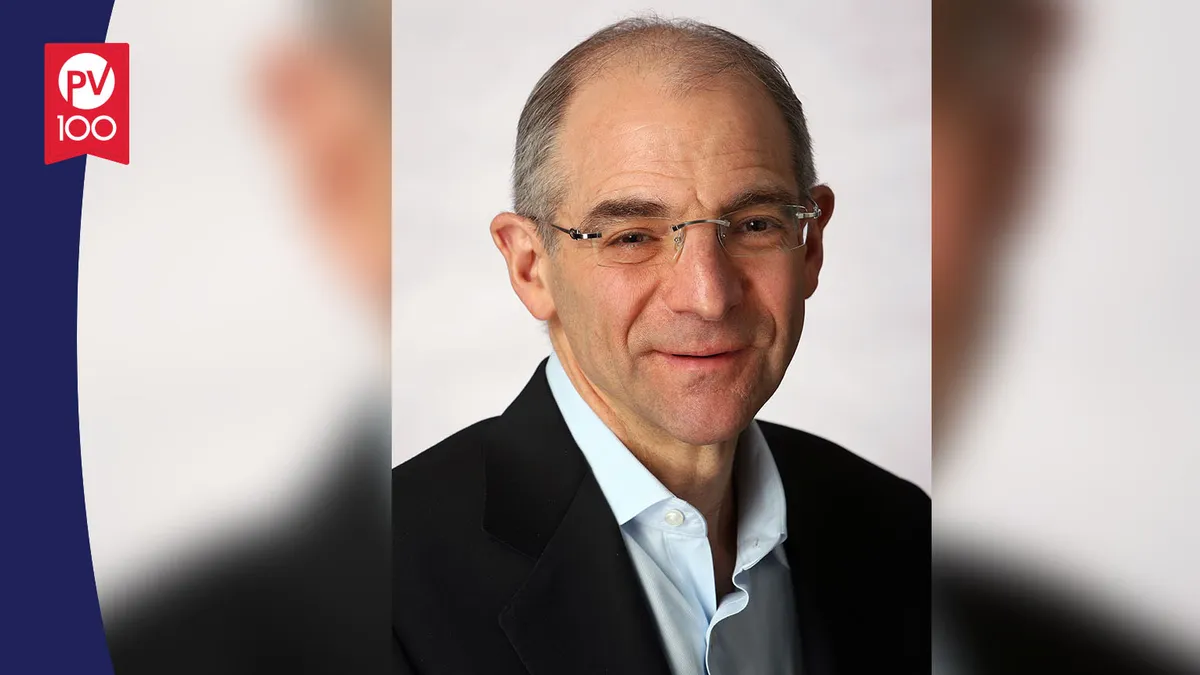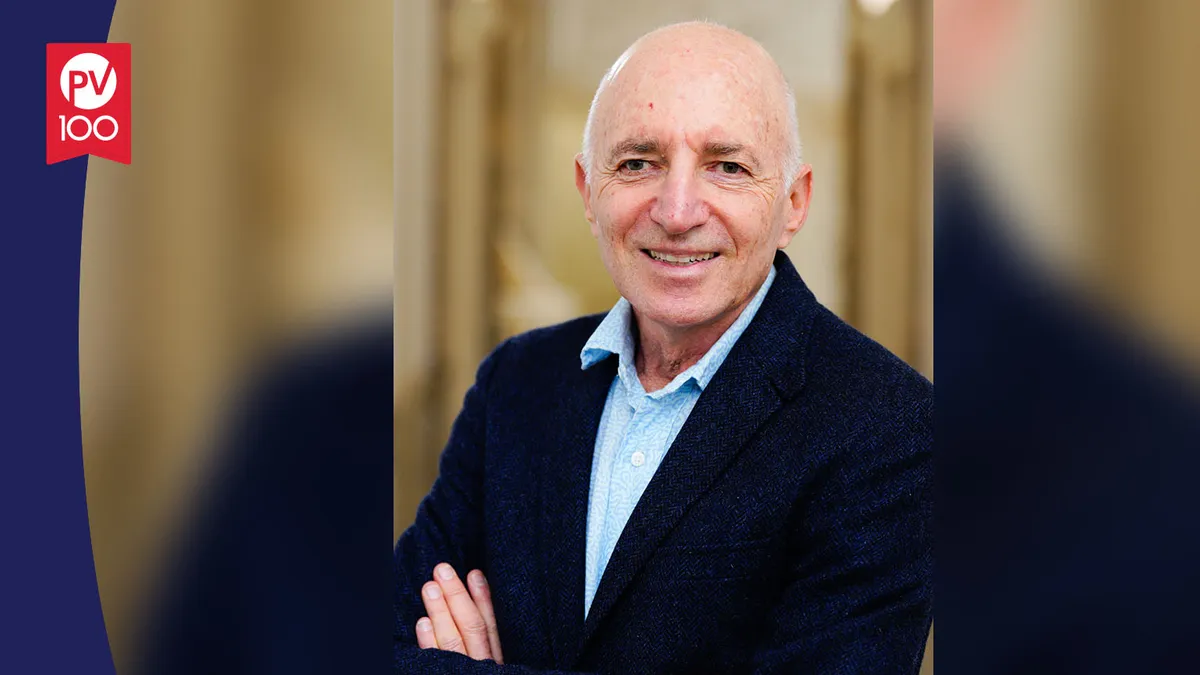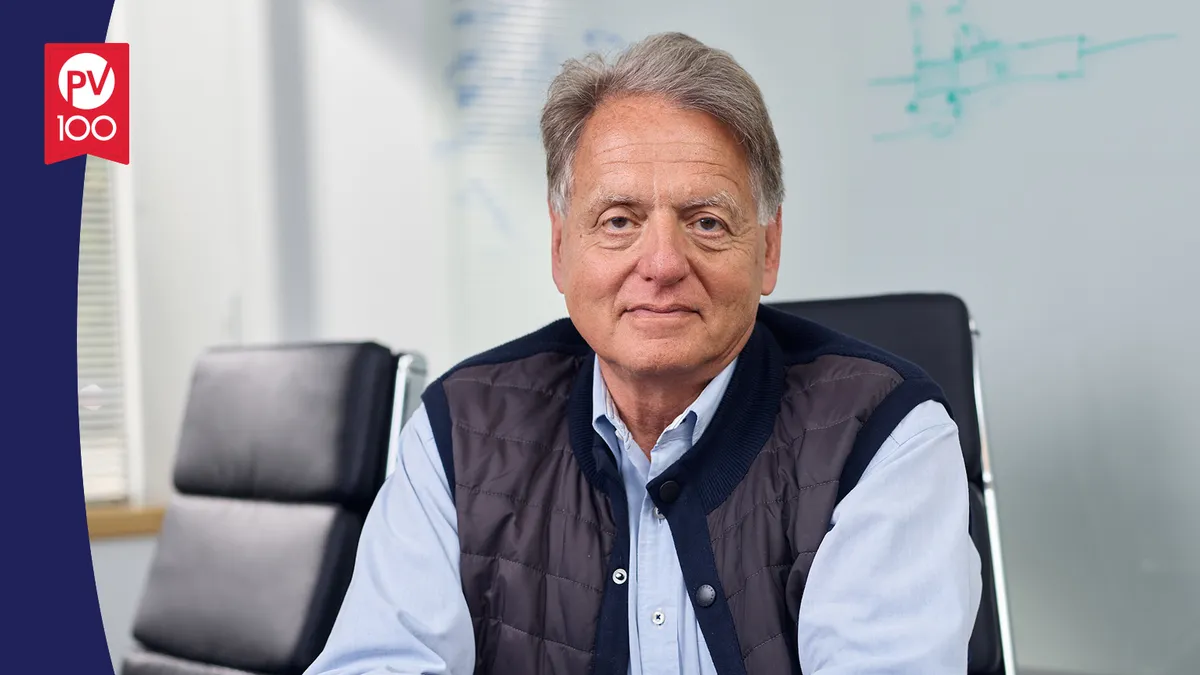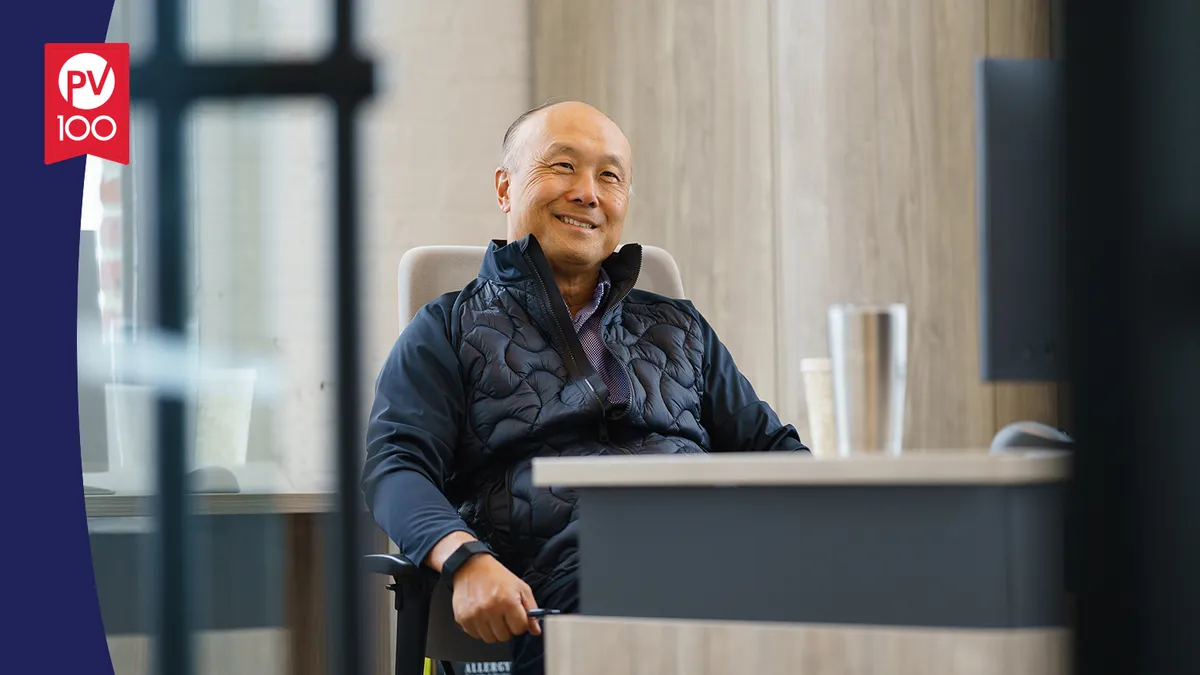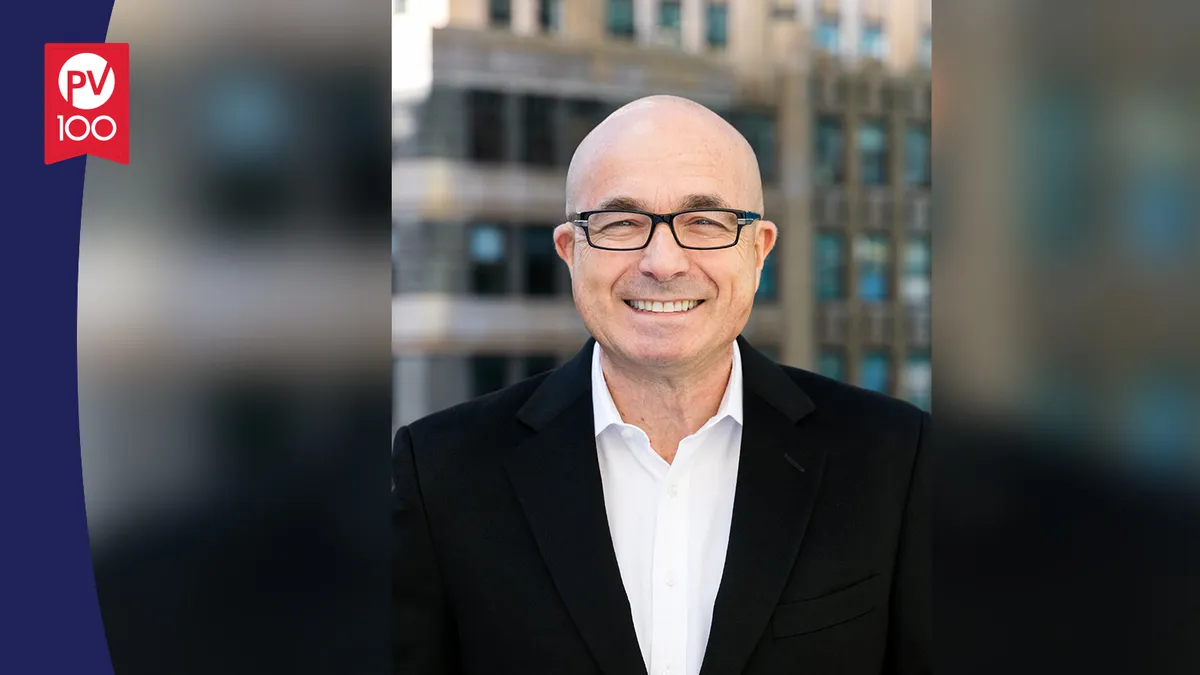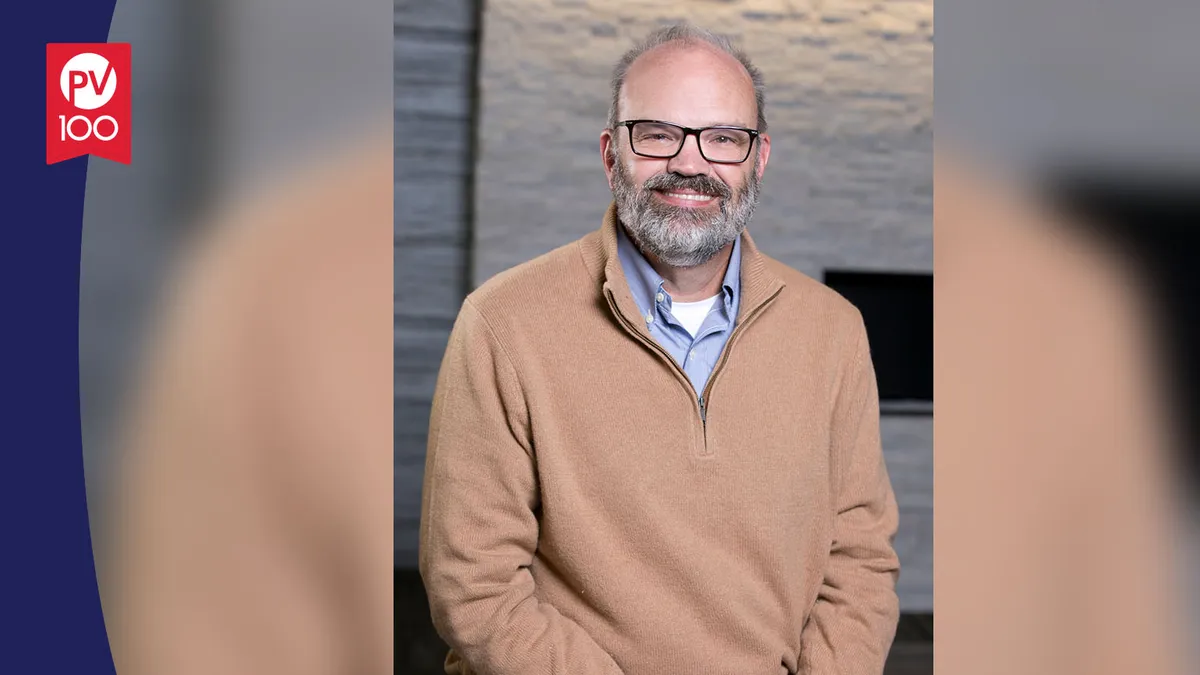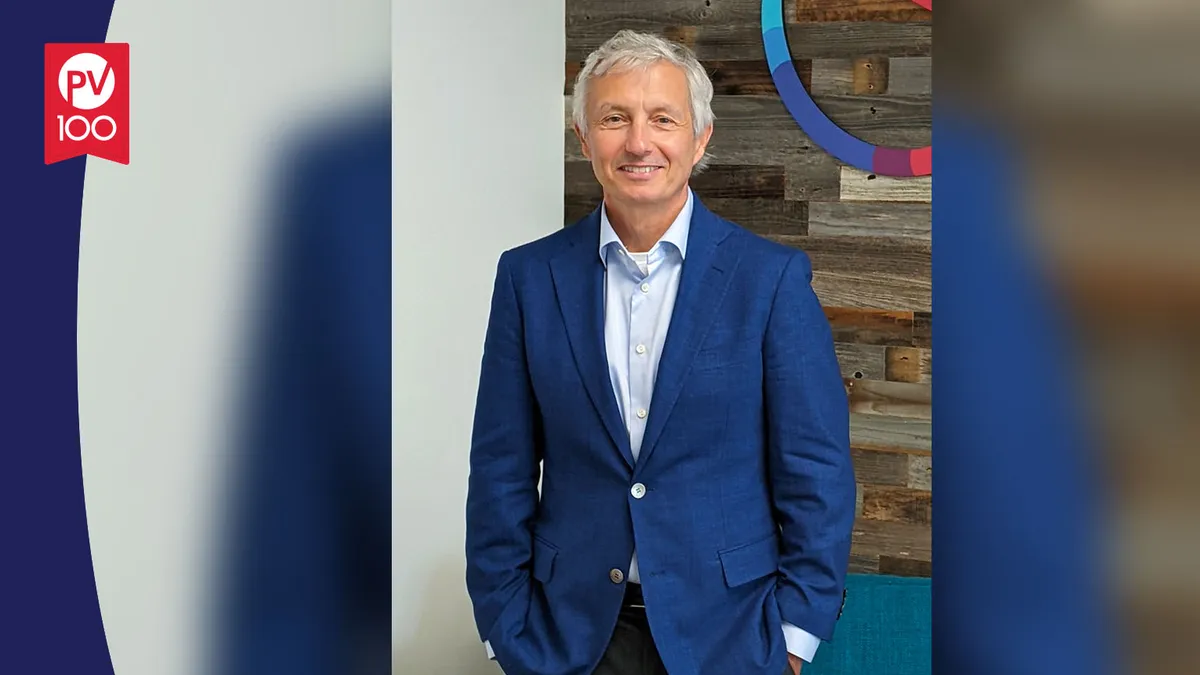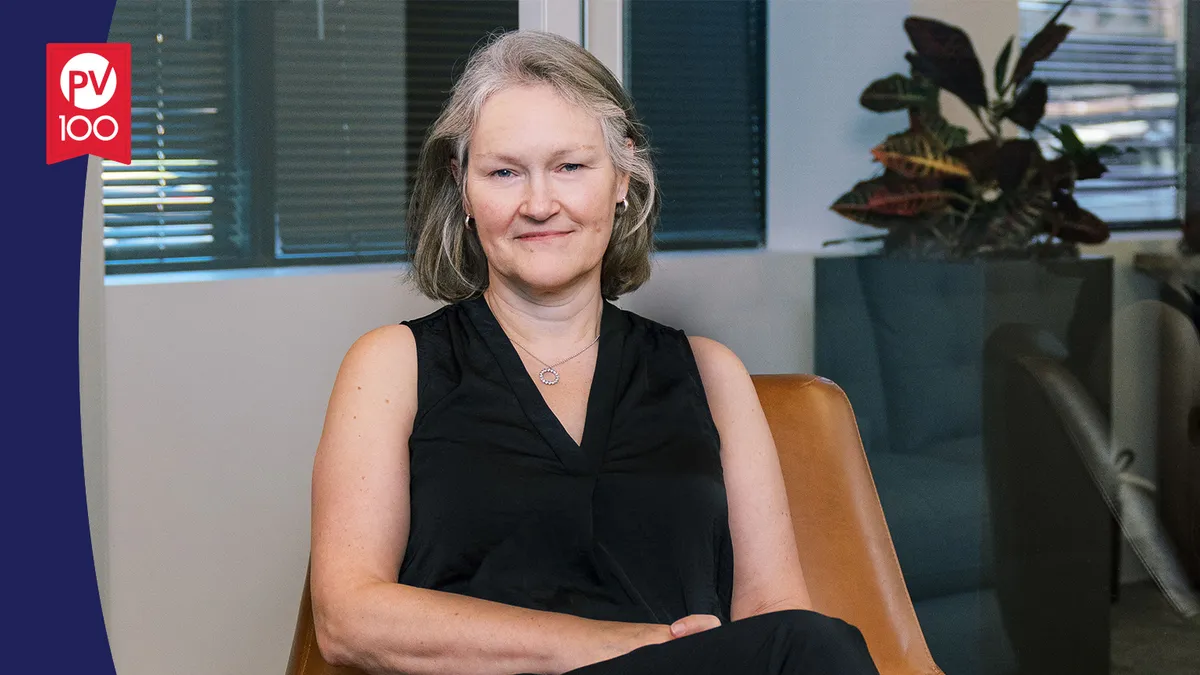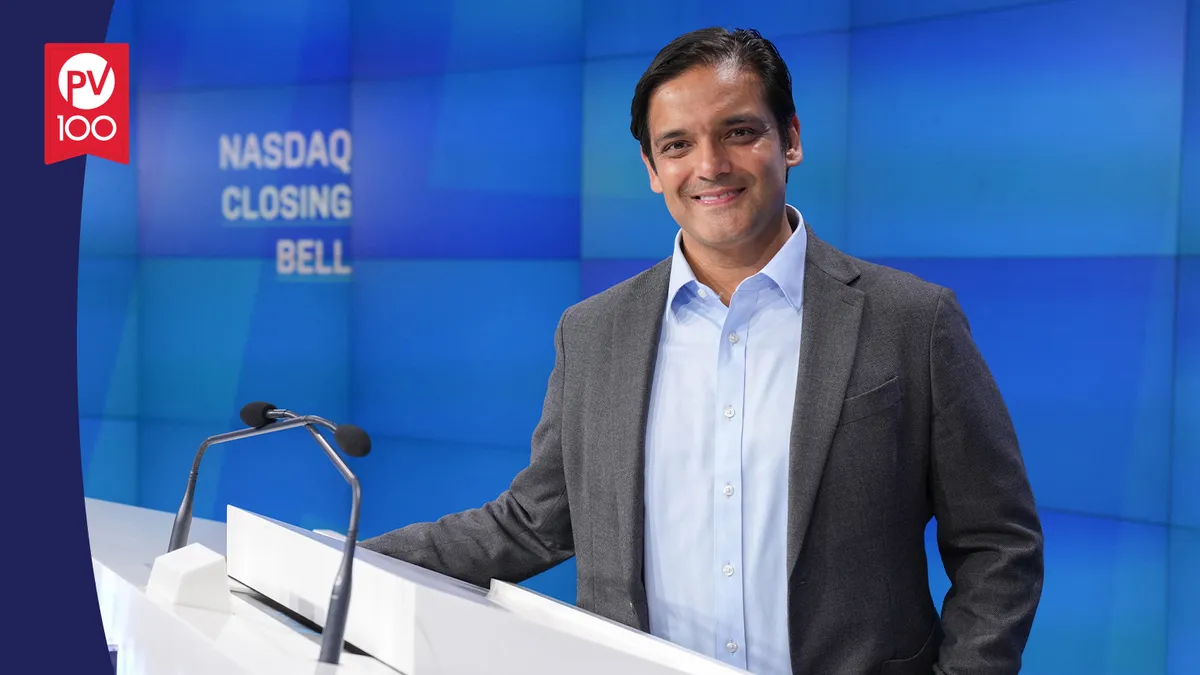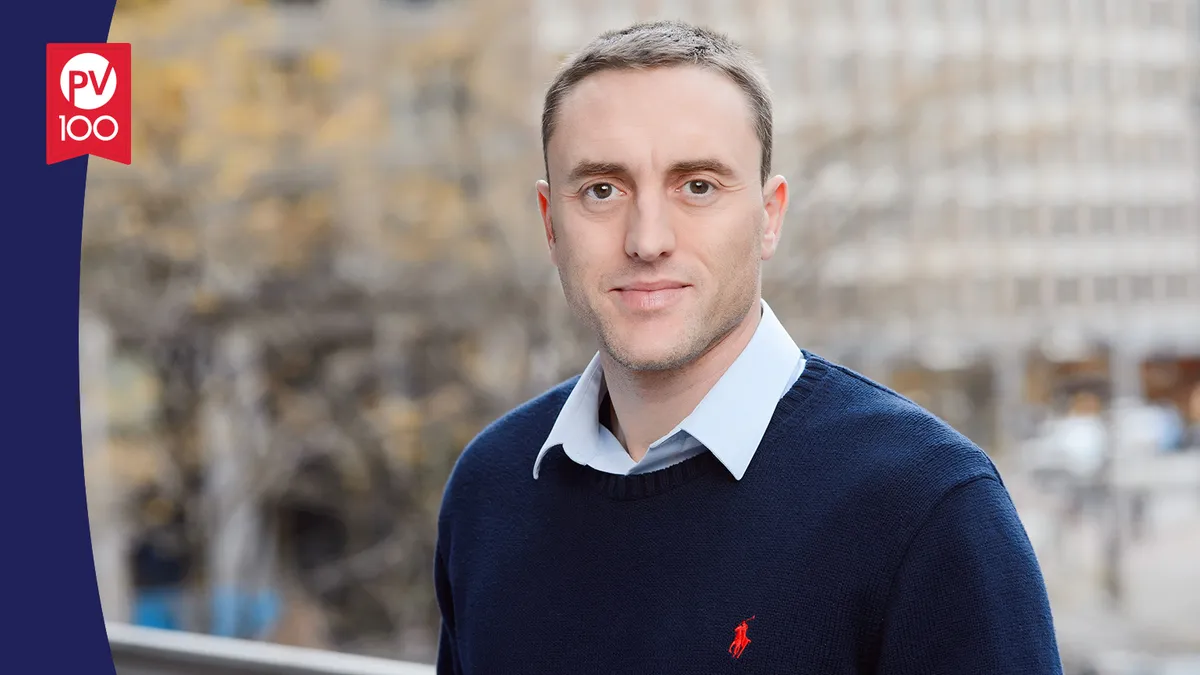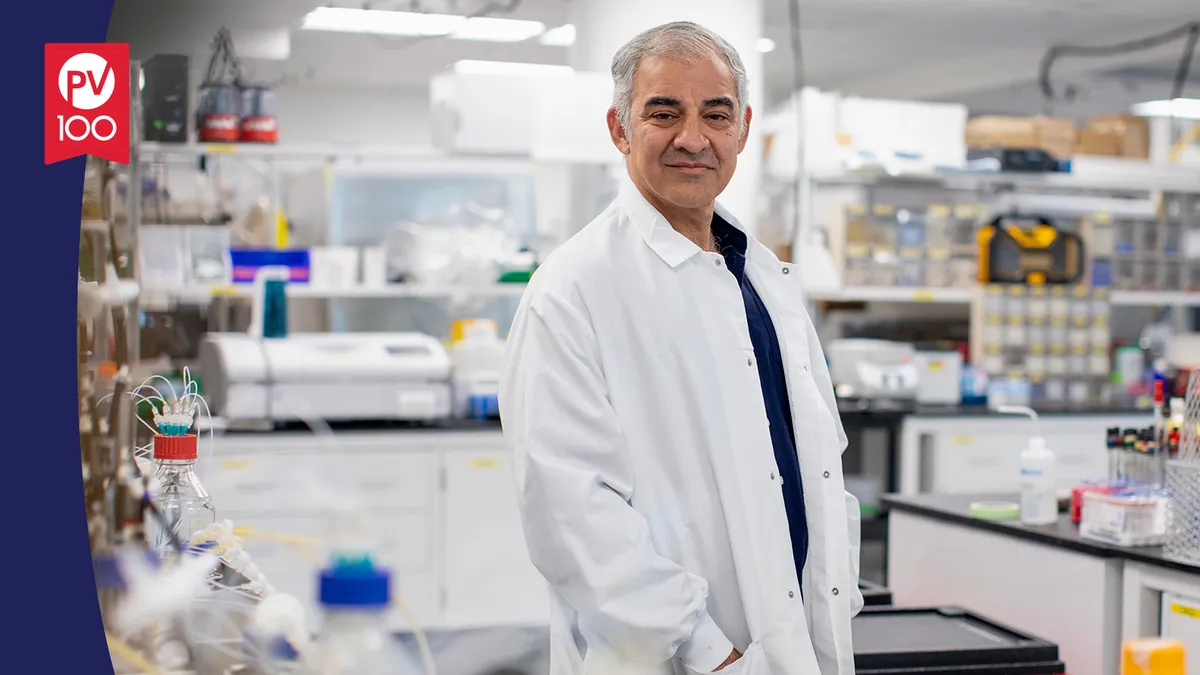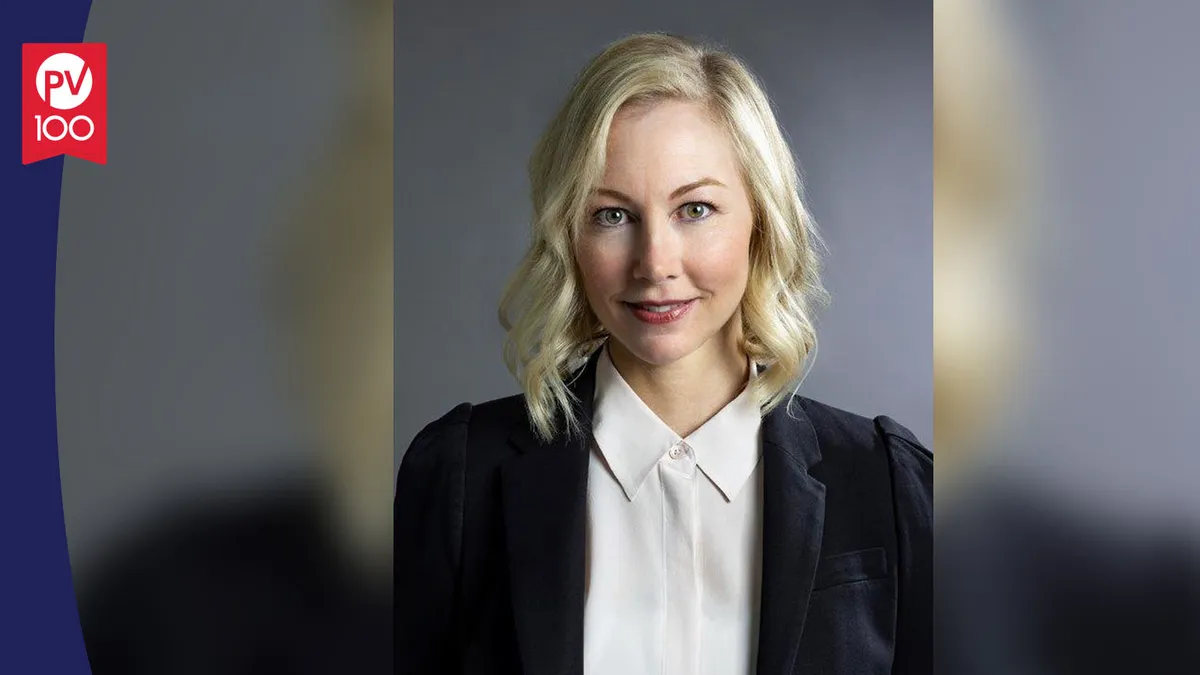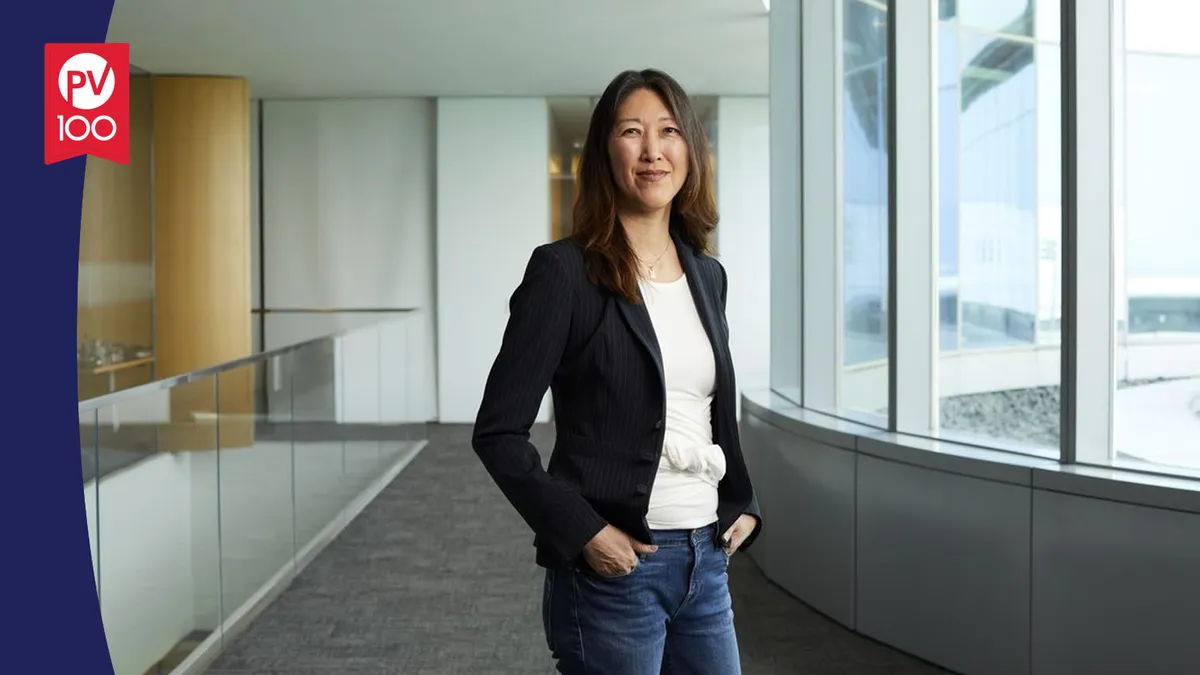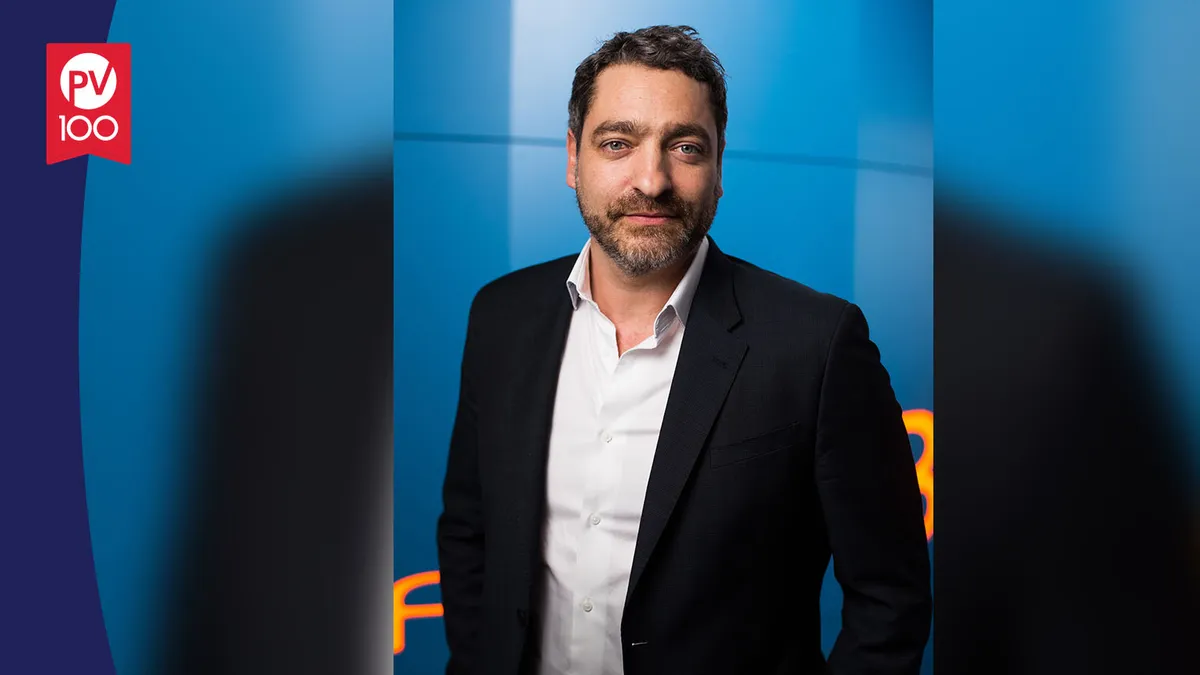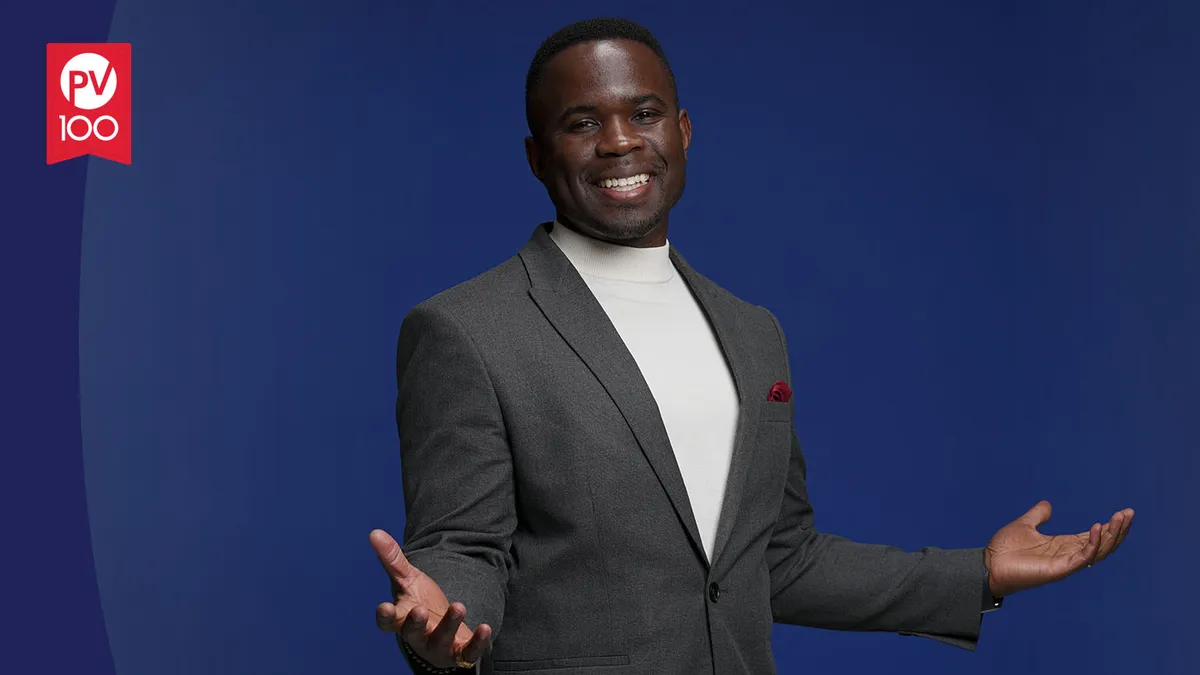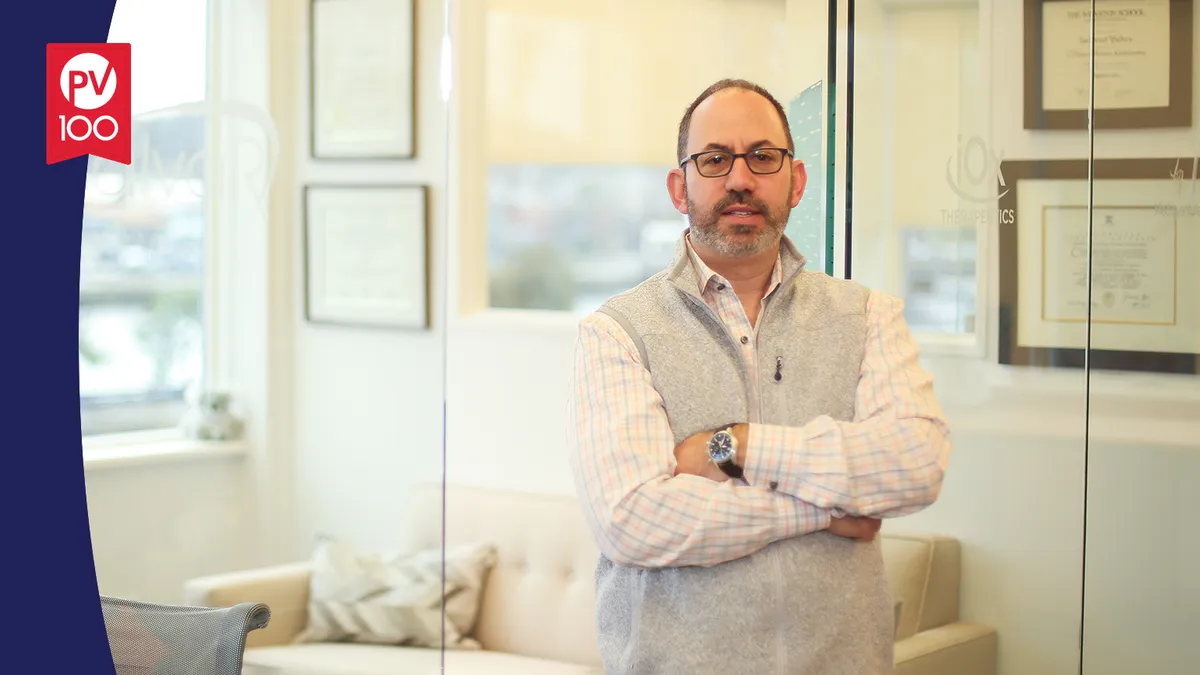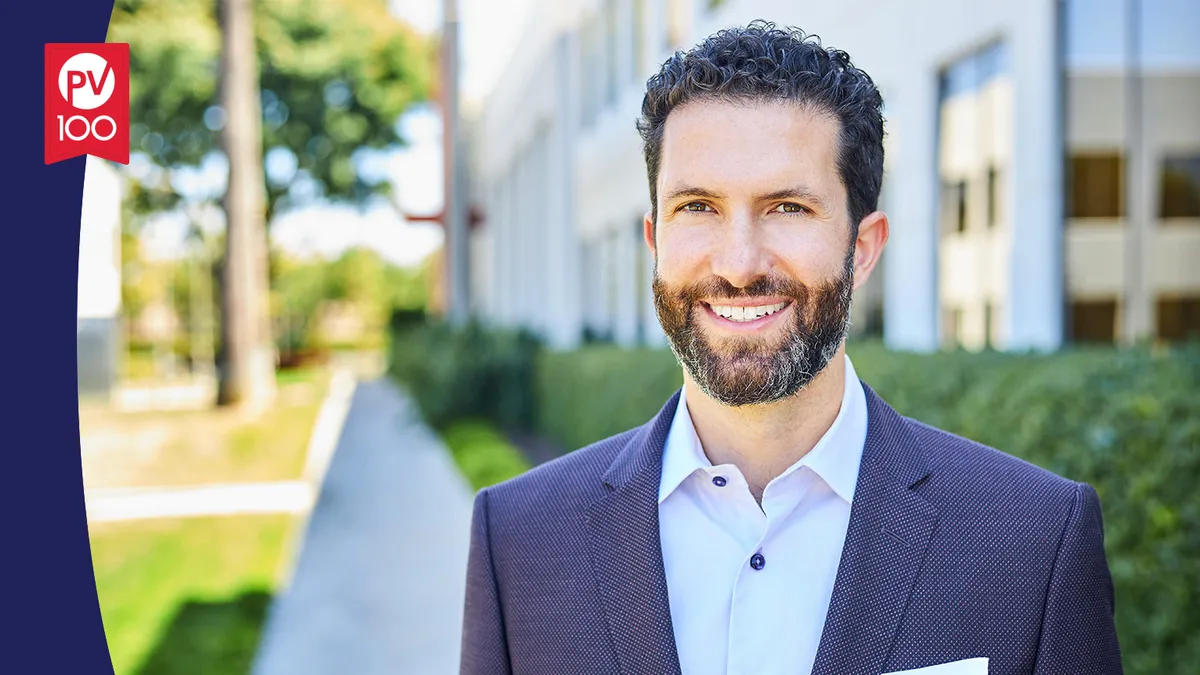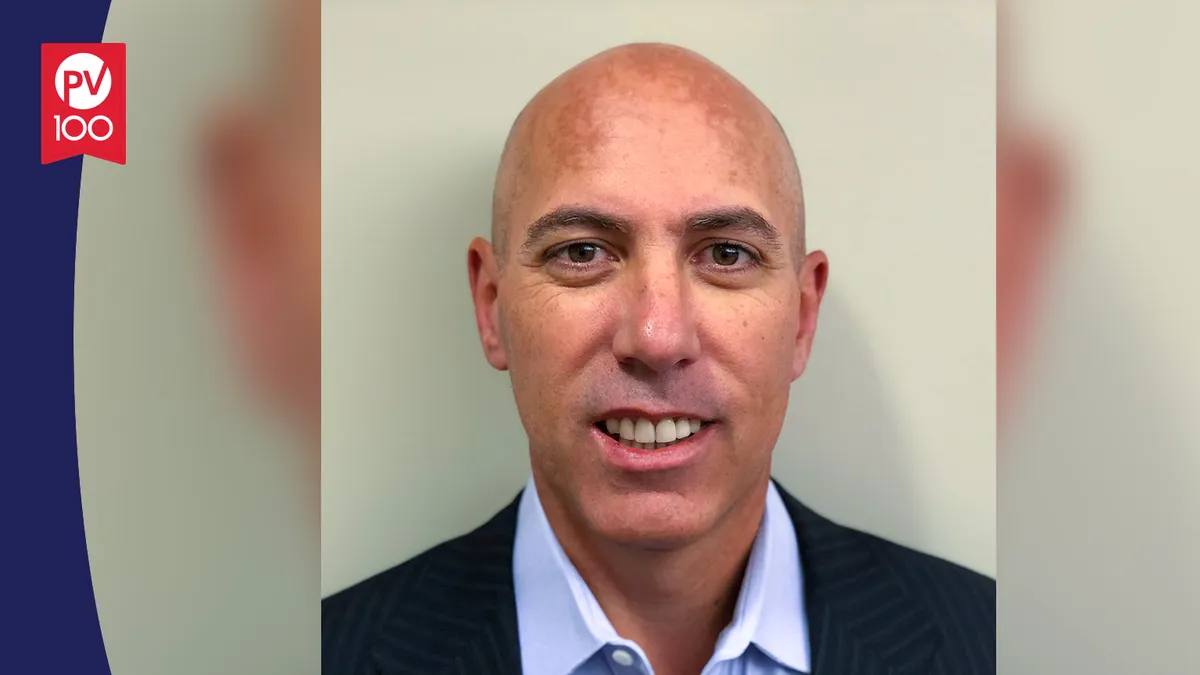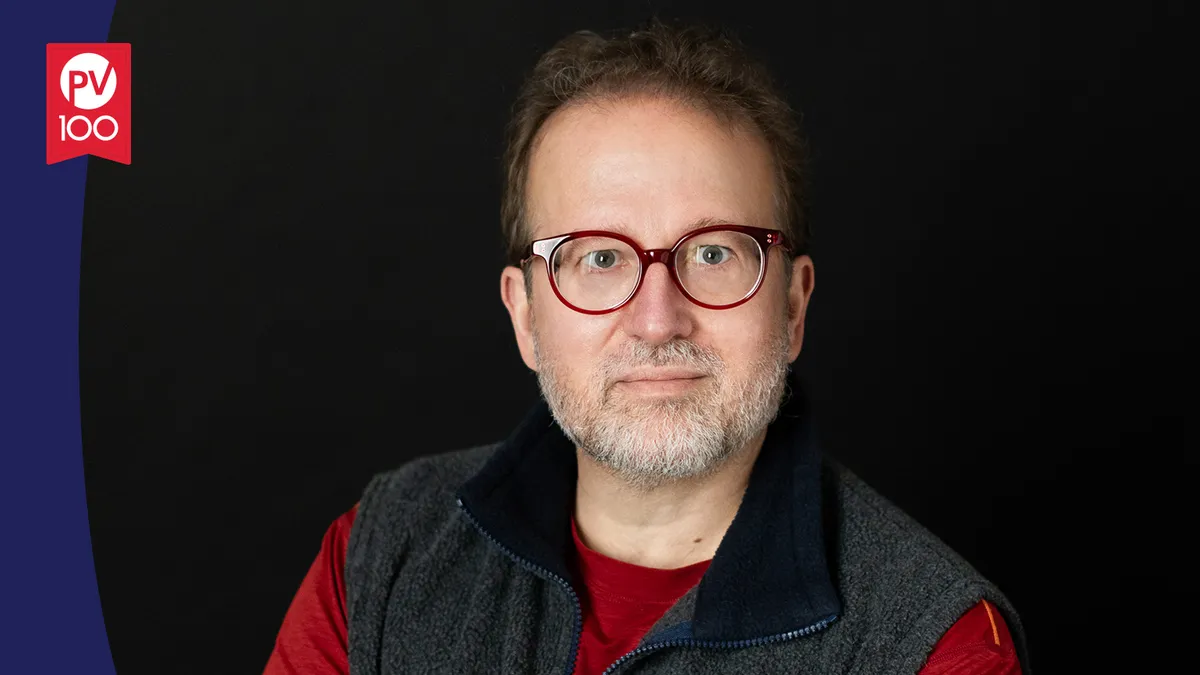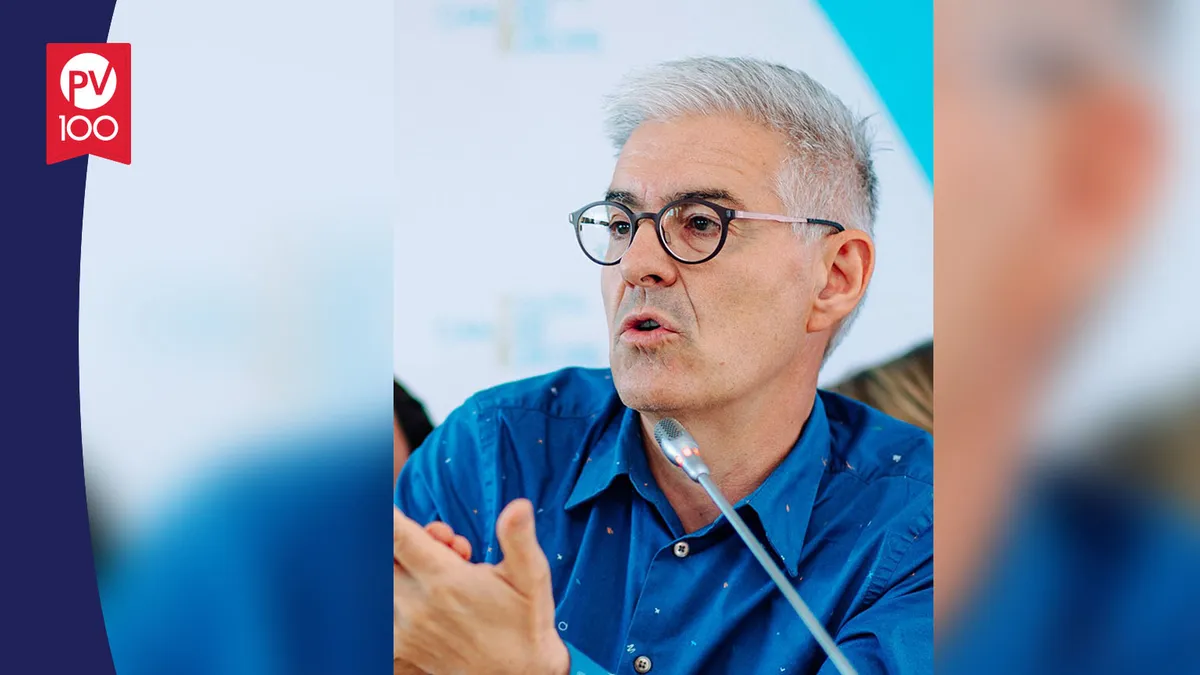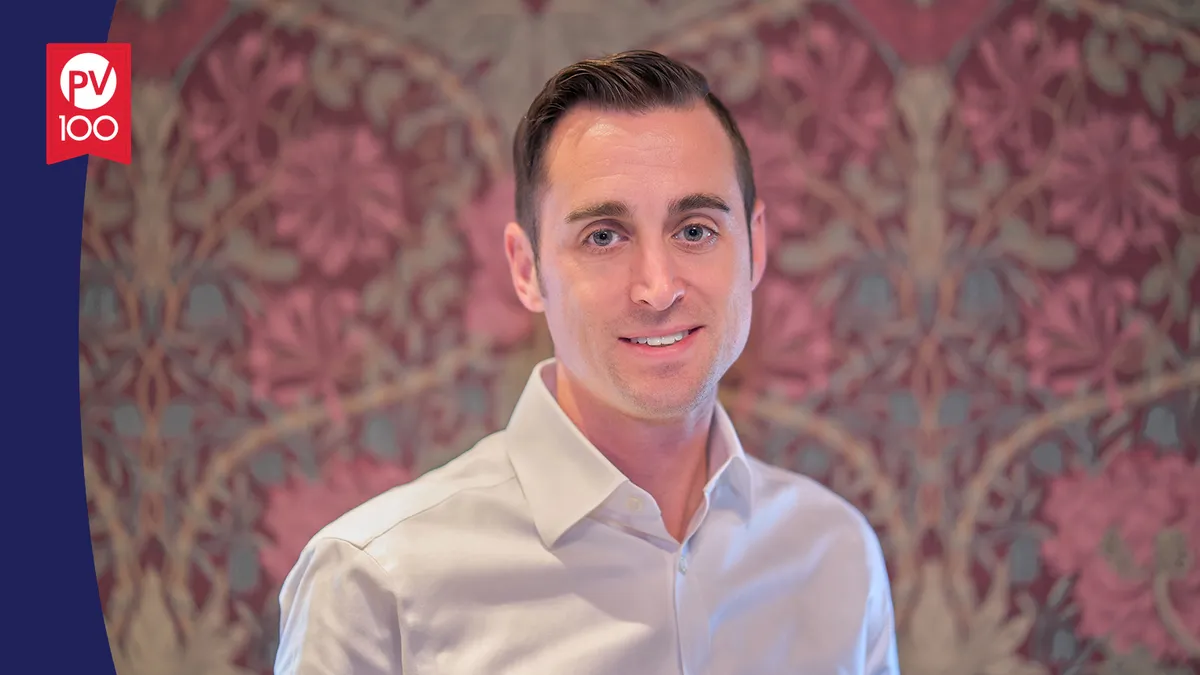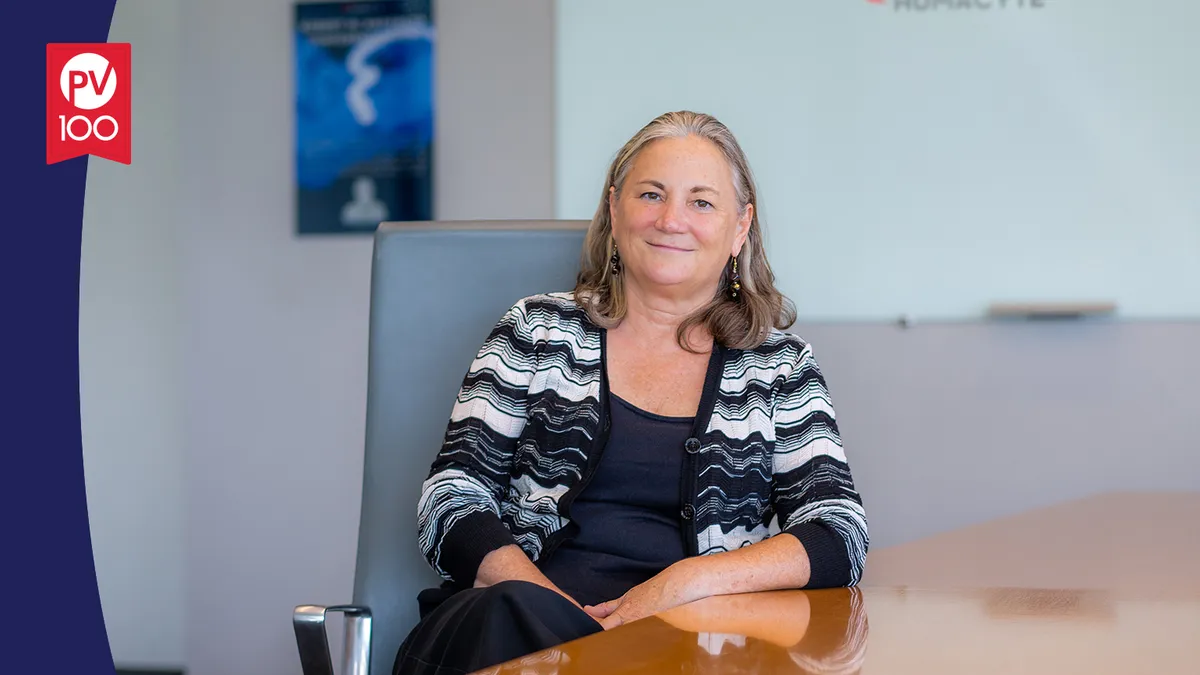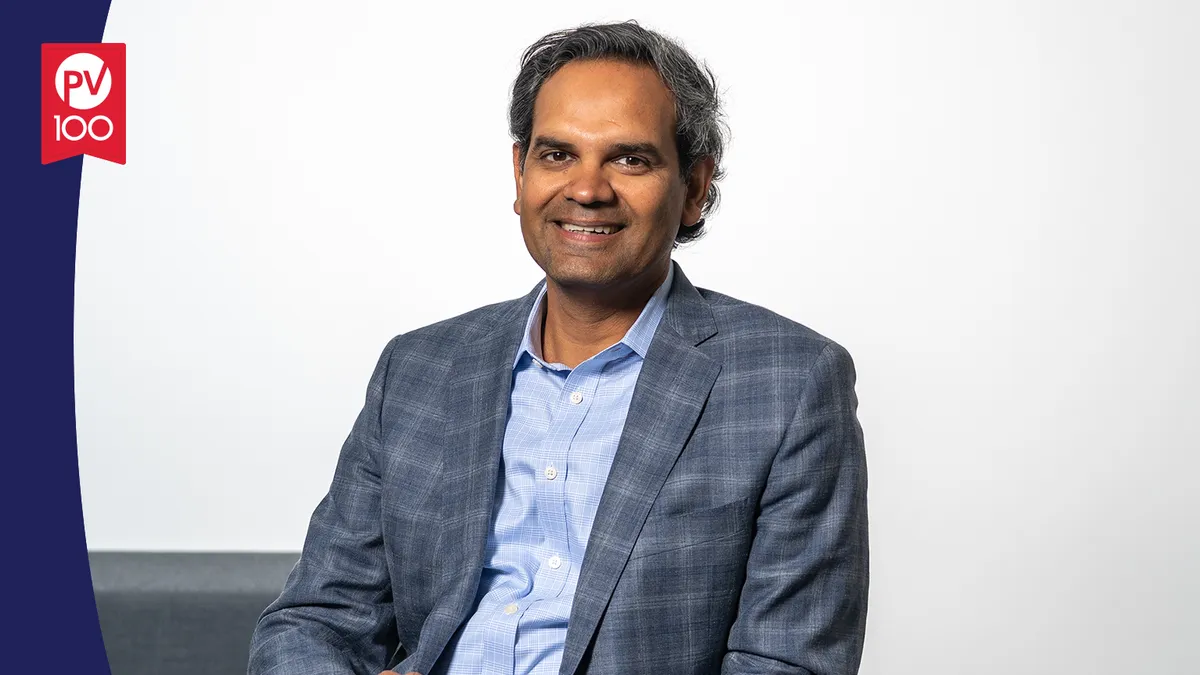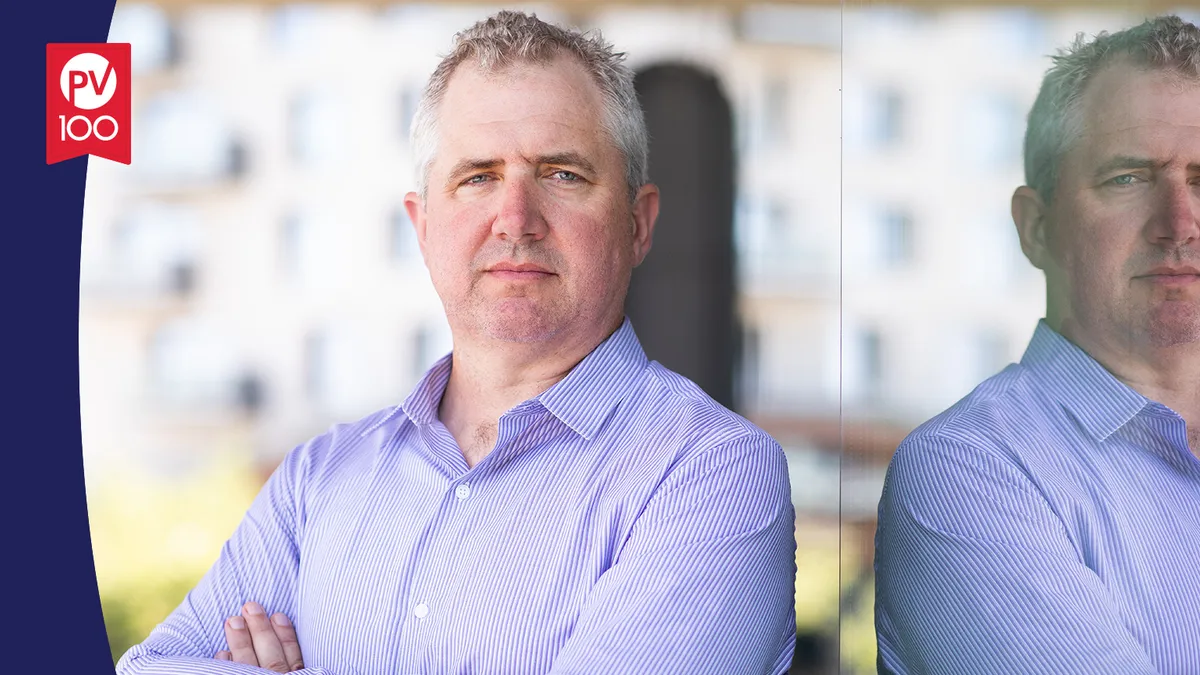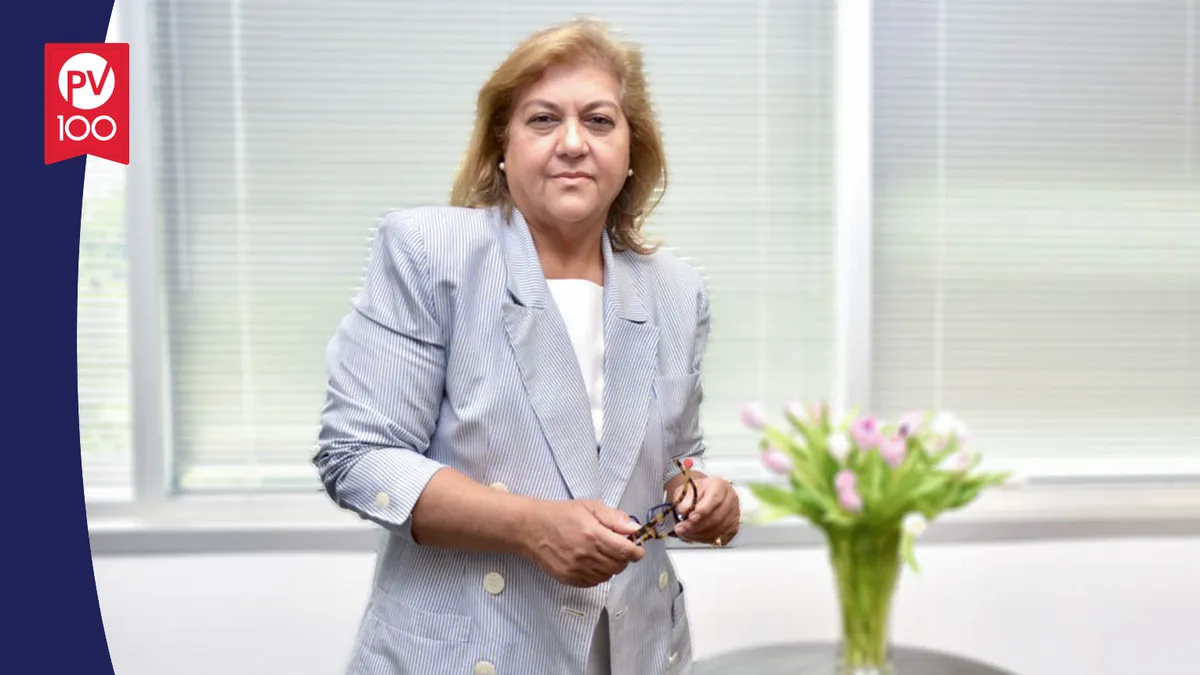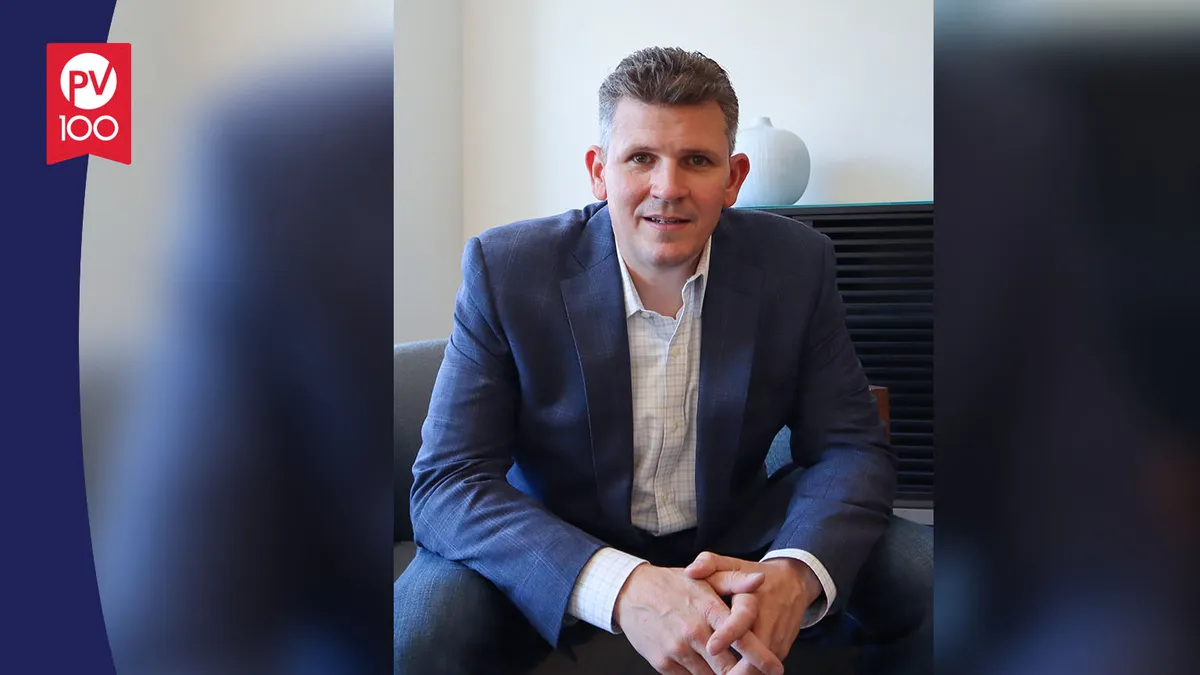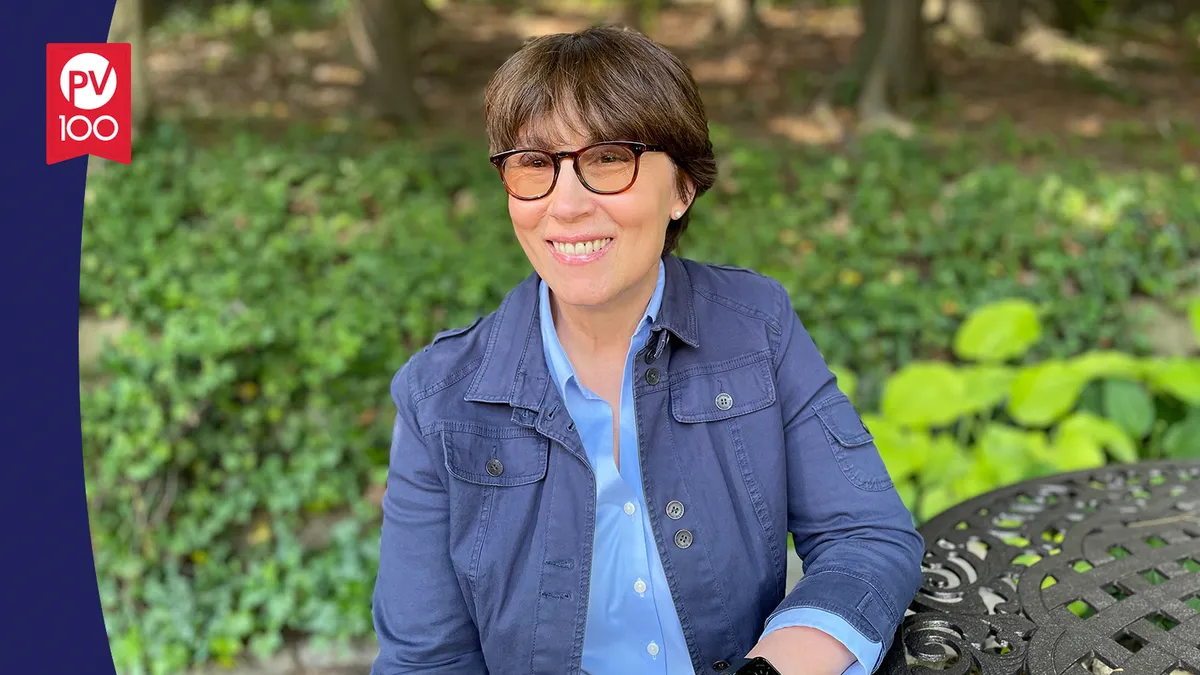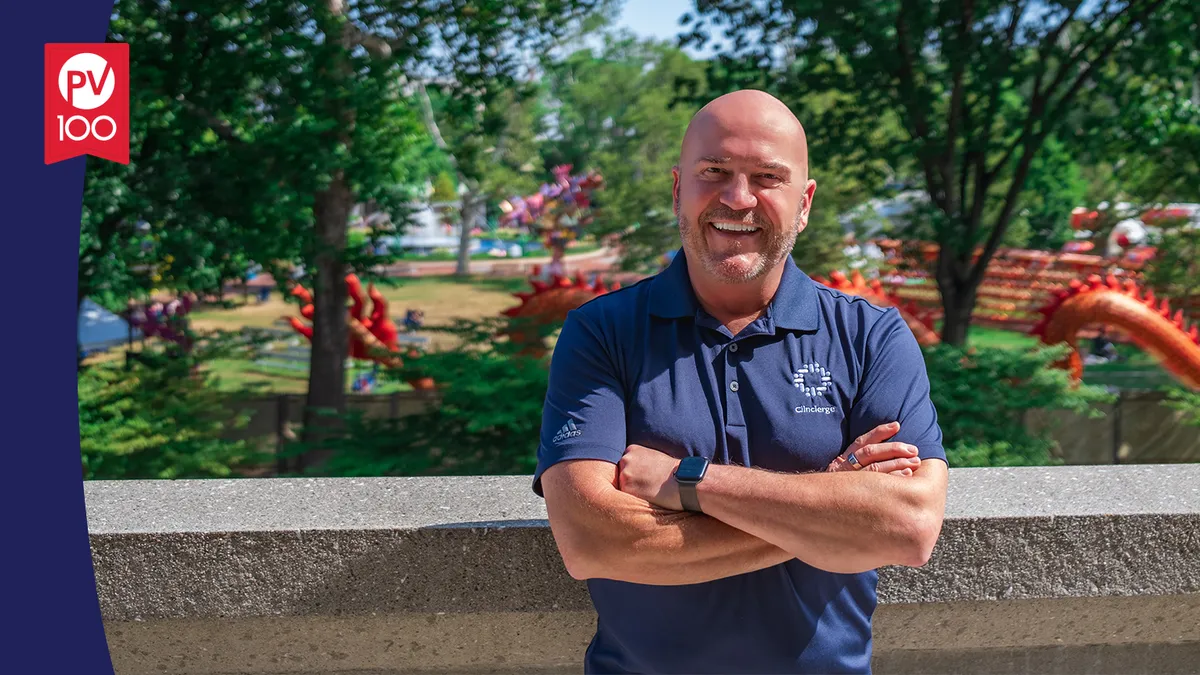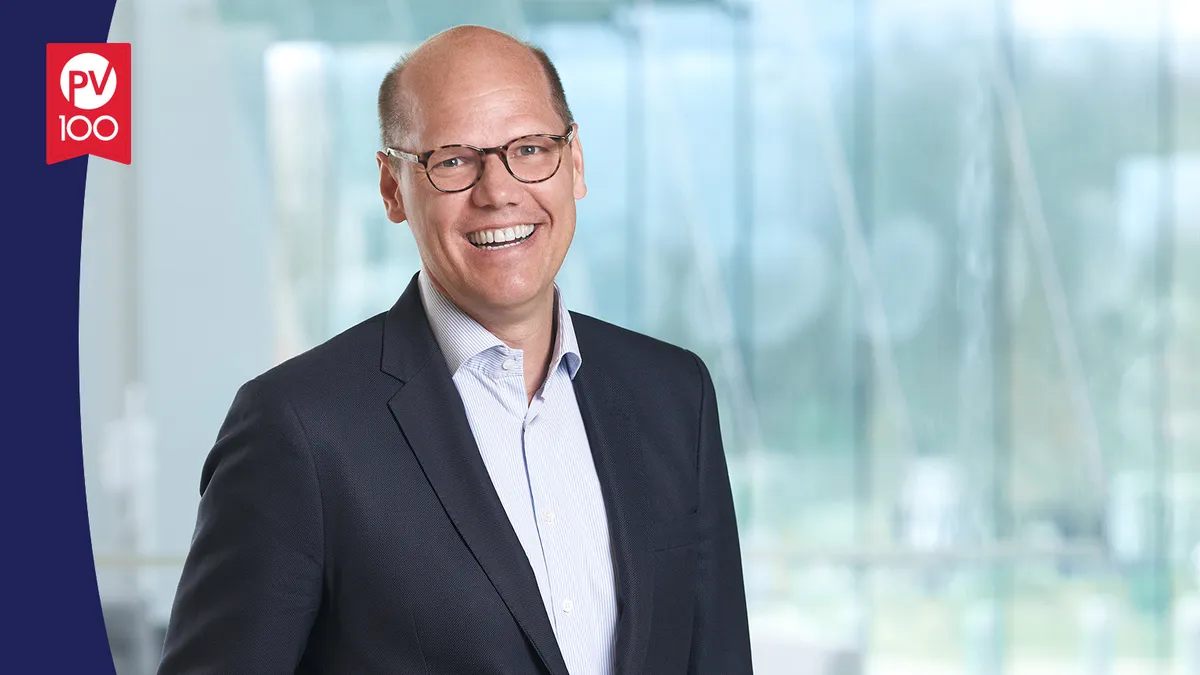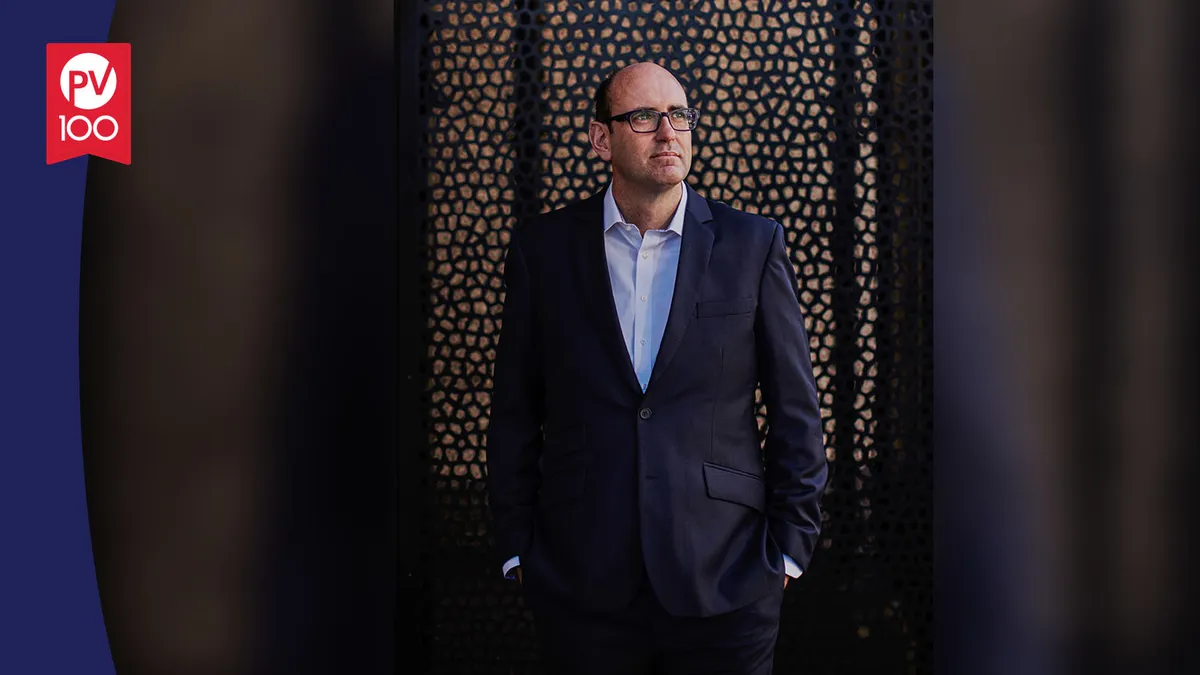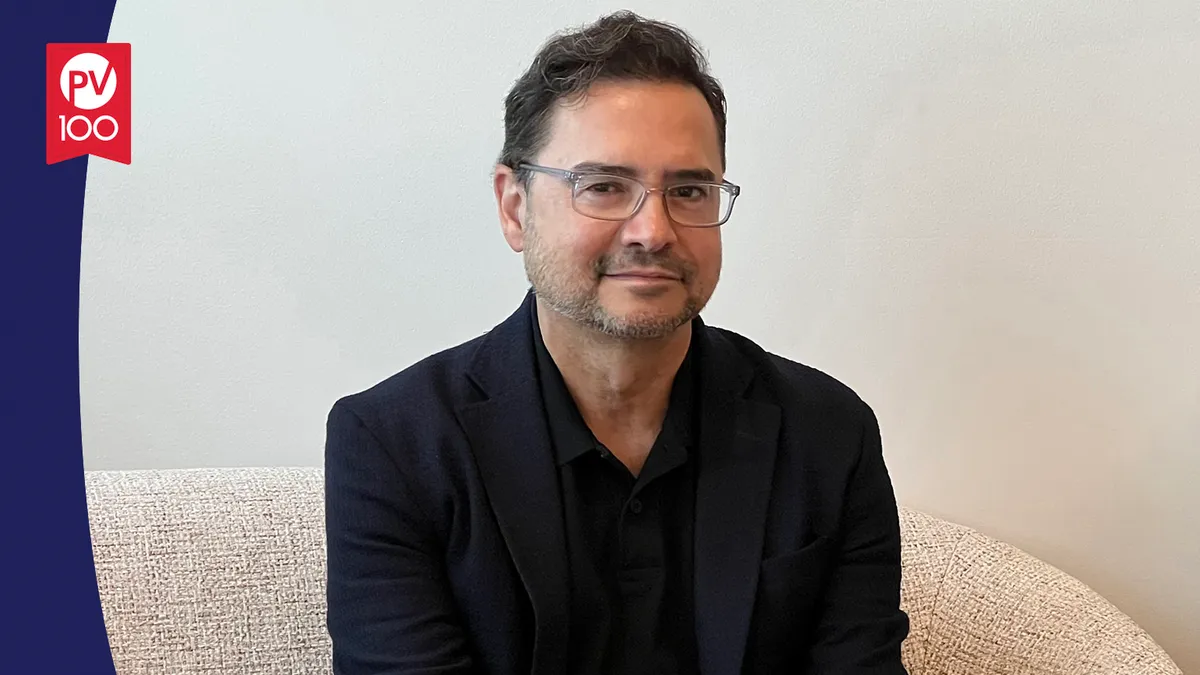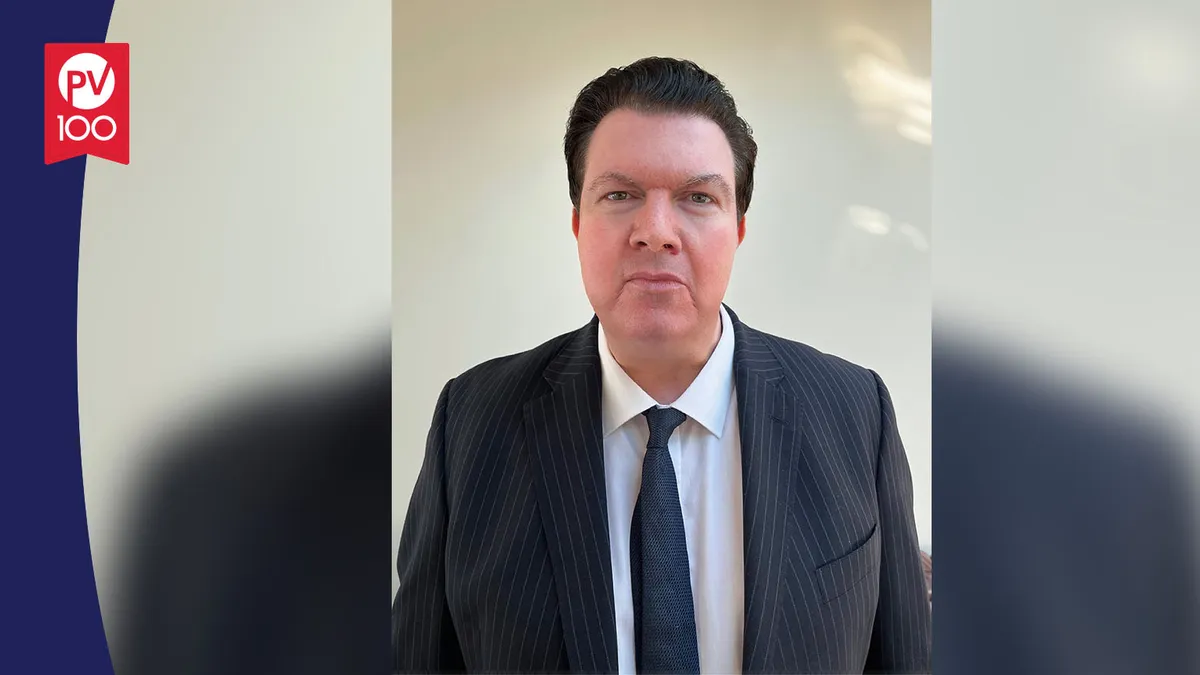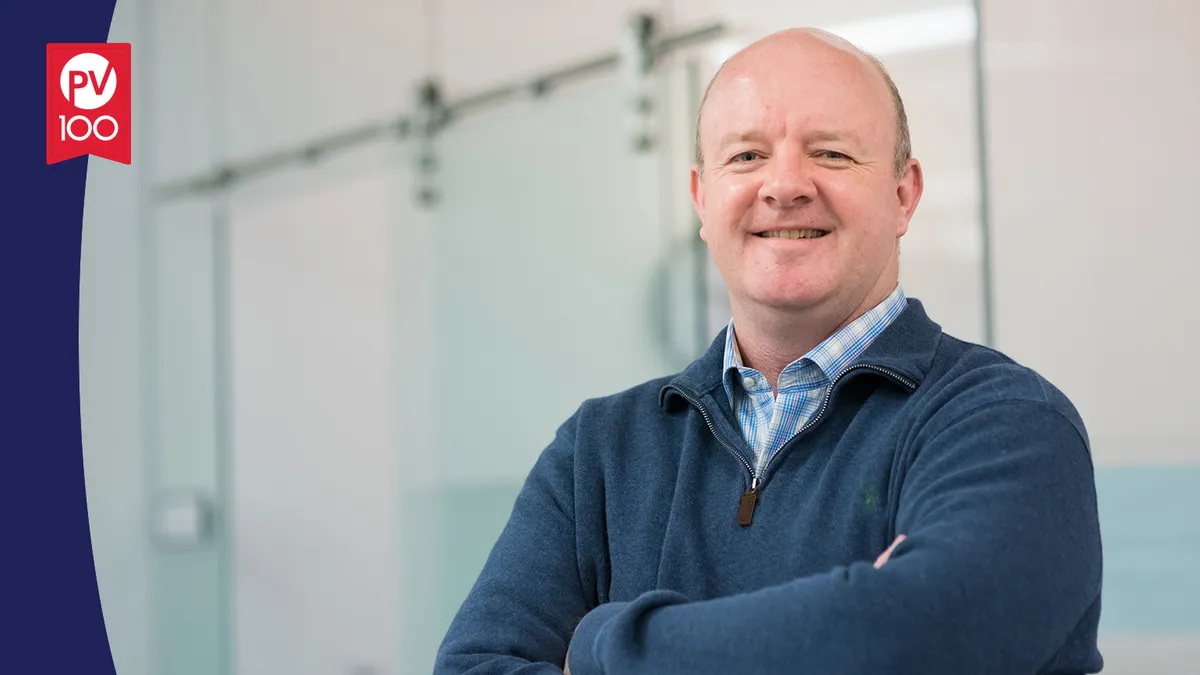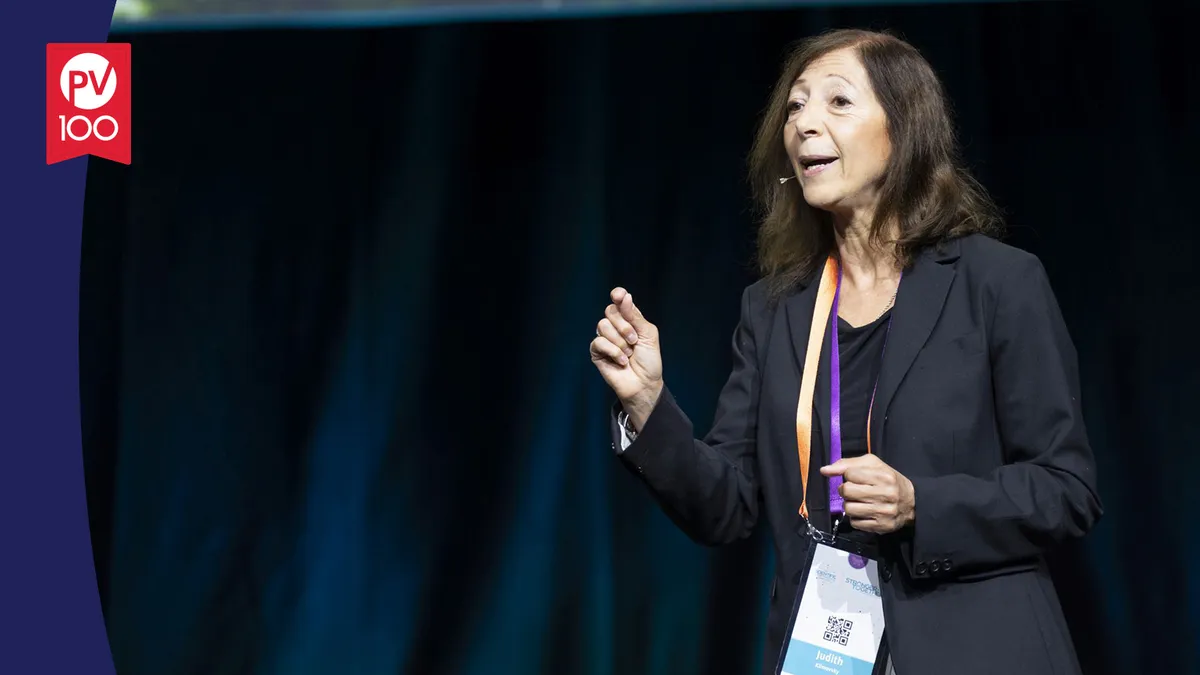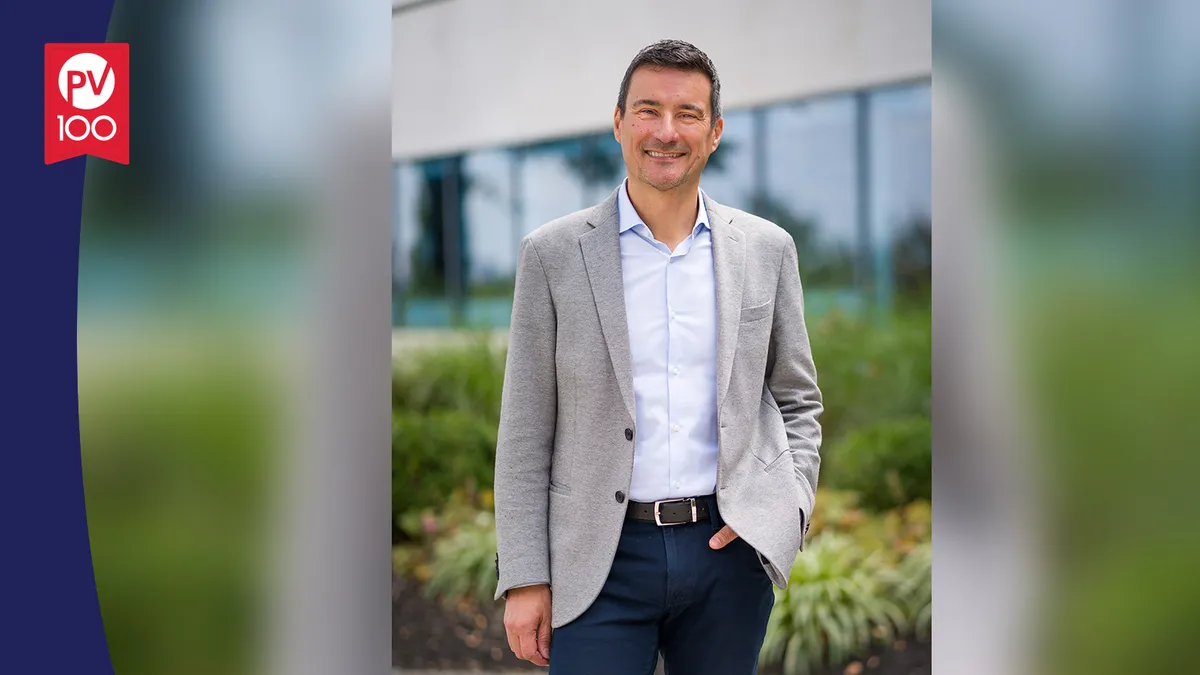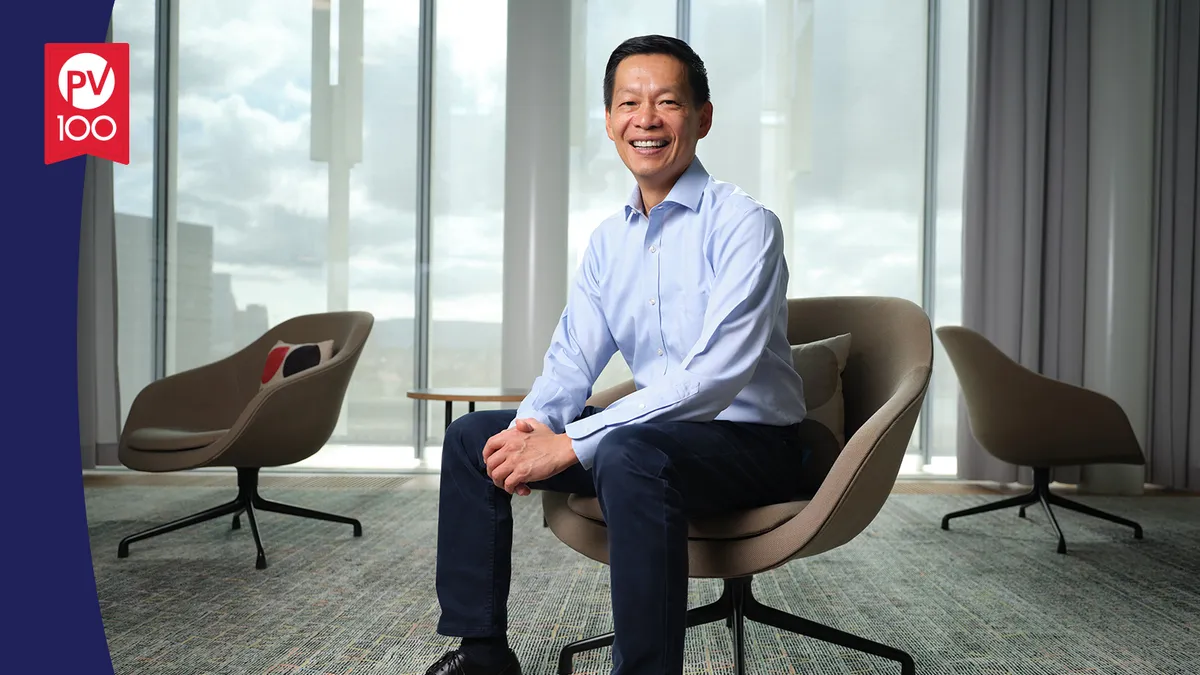Editor’s note: This story is part of our 2022 PharmaVoice 100 feature.
Kymera Therapeutics is at the forefront of a new technology called targeted protein degradation, a modality that harnesses the body’s natural cellular recycling machinery to break down or degrade unwanted proteins. The premise is that by interrupting the cellular process, Kymera will be able to drug previously undruggable targets with small molecules.
“[Our technology], while based on a simple premise, will require an enormous amount of scientific effort to bring to fruition,” Nello Mainolfi, the company’s co-founder, president and CEO, says. “This technology could potentially be applied to any biological target, and any disease, and the only limitation we have is our own imagination and ability to execute on our plans. I feel a great responsibility to push our work forward and make an impact on people’s lives as quickly as possible.”
Mainolfi has an empty prescription bottle sitting on his desk waiting for Kymera’s first drug.
“This bottle reminds me every day of our mission to change people’s lives through our science, and the obligation we have to bring this promise to reality,” he says.
Kymera’s initial focus is on immune inflammatory diseases and cancers with limited or no known treatment options. According to the company, current programs target IRAK4, IRAKIMiD and STAT3, “each of which center on a single critical signaling node within the IL-1R/TLR or JAK/STAT pathways.”
In August 2022, the company announced it had begun dosing patients for each of these programs and is on track to deliver data readouts for each before the end of the year.
Mainolfi has also attracted private and public investors to Kymera — raising more than $1 billion — and “closed two large partnerships with Sanofi and Vertex totaling $200 million in upfront non-dilutive financing,” his nominator adds. “Mainolfi leads with the knowledge that Kymera’s people are its greatest asset … resulting in one of the highest retention rates in the industry.”
Kymera is not Mainolfi’s first entrepreneurial venture. He started his drug discovery career at the Novartis Institutes for Biomedical Research, leading teams to identify multiple novel medicines across a series of disease areas; he was an entrepreneur in residence at Atlas Venture; and he led discovery research at the cancer metabolism startup Raze Therapeutics.
“[Mainolfi] brings both scientific and business savvy to the organization; he is an inspirational leader with a vision to make Kymera a global integrated biopharmaceutical company,” a nominator says. “He has a high entrepreneurial and innovative spirit, warmth and passion for creating medicines for difficult disease areas.”
Here, Mainolfi discusses setting the company culture, why he chose the life sciences industry as a career, his leadership style and the trends he’s tracking.
“I was drawn to this industry by the challenge of scientific discovery and the opportunity to have a massive societal impact by improving the lives of patients across the globe. I can’t imagine doing anything else.”
Nello Mainolfi
CEO, co-founder, president, Kymera Therapeutics
PharmaVoice: How are you setting Kymera’s culture?
Nello Mainolfi: As a founder and CEO, my most important responsibility is to focus unrelentingly on our culture and staying true to our mission. As we have evolved from an idea to a company with three molecules in clinical trials, I need to help our teams manage our current challenges while preparing the organization to meet the next one.
I find I can best do that by ensuring that we stay true to our core values — that we continue to be science-focused and data-driven, and that we are truth-seeking, collaborative and inclusive. It’s easy to be distracted by short-term challenges, but our decisions need to be consistent with our mission to radically transform the treatment of disease by leveraging our groundbreaking platform to create a new generation of medicines.
What drew you to the life sciences?
I was drawn to this industry by the challenge of scientific discovery and the opportunity to have a massive societal impact by improving the lives of patients across the globe. I can’t imagine doing anything else.
It’s a humbling responsibility to ensure that we are doing right by Kymera’s 170 employees and their families, that we continue to bring in new colleagues who will challenge us and help us to add best-in-class capabilities, and that we maintain a sense of urgency to bring life-changing new medicines to the people who need them. While these things keep me up at night, they also inspire me — there’s nothing I’d rather be doing.
How would you describe your leadership style?
In our industry it’s important to understand what we can and cannot control. I try to focus on the former, and to lead in a way that encourages excellence in what we can control, while understanding that, when trying to do things that haven’t been done before, you must be willing to take risks, sometimes make mistakes and learn from them. That means following the data, being direct with each other and rewarding substance, not style. I want our teams to strive to design the best molecules and studies, to be curious and committed, to treat each other with respect and feel free to be themselves. If we can do that, I’m confident we will build a company that has a significant impact on patients’ lives.
Expectations of leaders and companies vary based on the state of the markets, the trends of the day and who you are listening to. I believe the best thing a leader can do is to focus on the long-term success of their company. That’s very simple to say, but it can lead to hard decisions with people, resources, partnerships and requires a degree of transparency that many find uncomfortable.
What is the biggest trend you are tracking?
I came to this country nearly 20 years ago because it offered me the best opportunity to learn and build my skills as a scientist. Over the past two decades the world, and our industry, have changed dramatically; it’s now possible to do great science and compete regardless of geography. Going forward, I think this will be a challenge not just for Kymera, but for our industry as a whole. We’ll need to find ways to raise our game or we’ll lose the advantage that the American biopharma sector had traditionally enjoyed. As an industry, I think we need to take this threat seriously and focus on how we can continue to inspire our best and brightest minds to apply themselves to improving people’s lives. I can’t think of anything more important.


